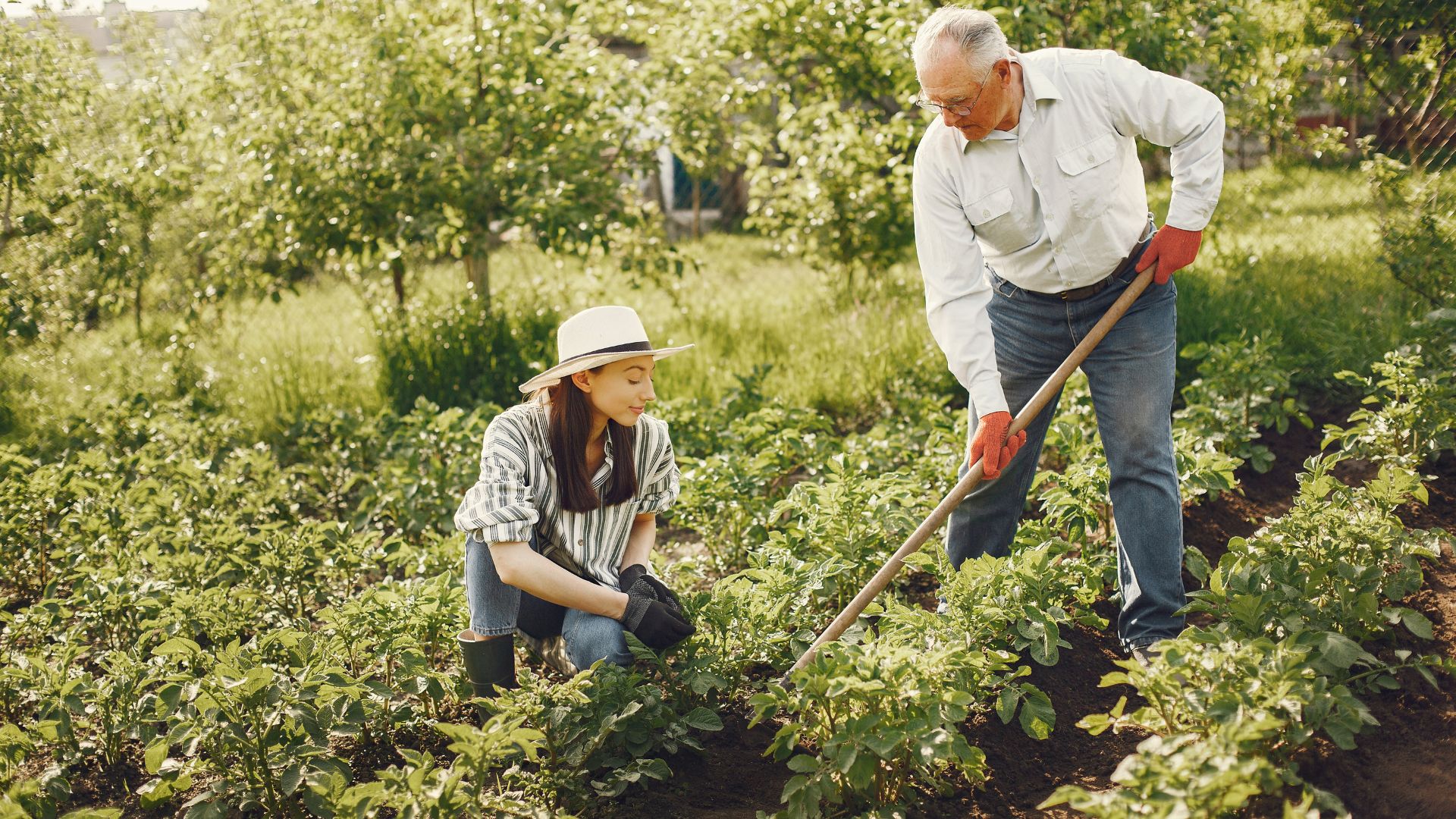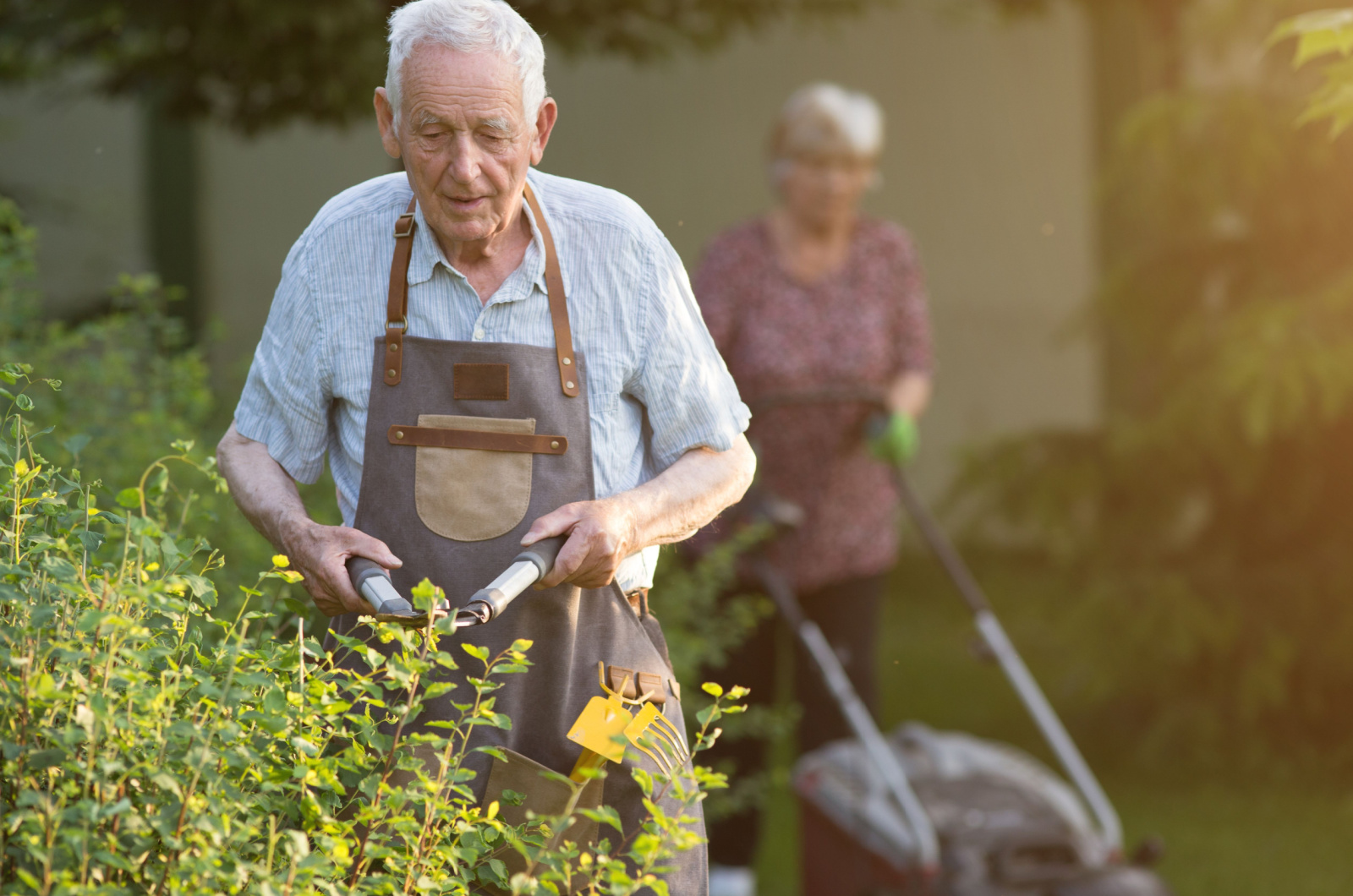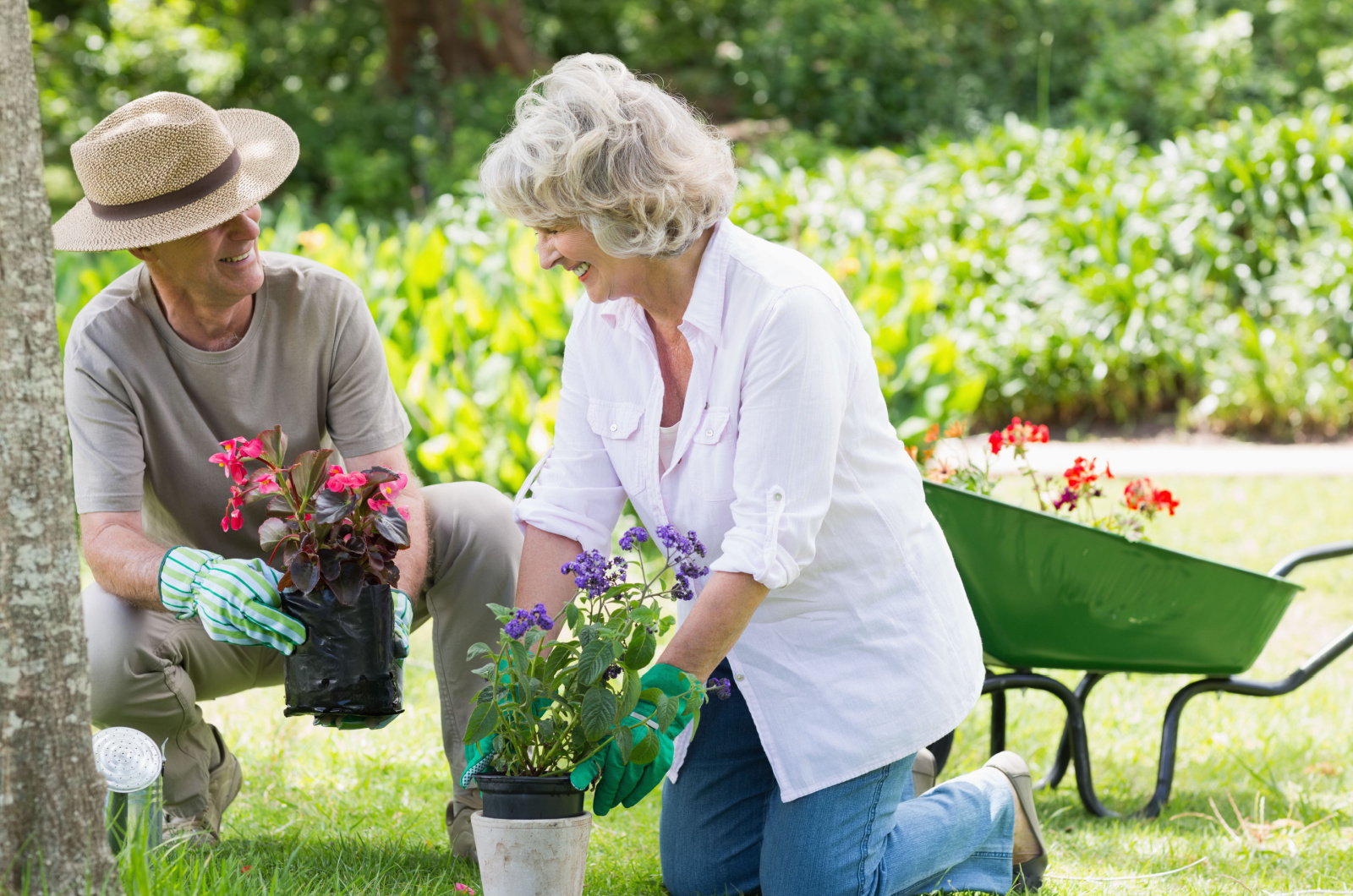Did you know that gardening is one of the best things you can do for your body and soul?
It allows you to be more physically active, burn more calories, increase fiber intake, reduce stress, and more.
And the best part about it is that it isn’t as demanding as some other exercises, such as running or going to the gym. This makes it easier for us to stay consistent and more likely to stick to the “programme.”
Let’s find out how exactly this exercise can help us in the short and the long run!
An Hour’s Worth Of Gardening
Gardening is considered a moderate to strenuous physical activity, something like walking and cycling, working your entire body. (1)
This form of exercise can burn a lot of calories. There are some rough numbers, but the number of burnt calories mainly depends on your size, age, and the activity you perform.
The CDC approximates that an average-sized person (154 pounds) can burn around 330 calories per hour from light garden work. (2)
This is how many calories different gardening activities can consume in an average-sized person: (3)
[table id=745 /]
Of course, you should always listen to your body and be careful when gardening. Don’t strain yourself, wear sun protection and a hat, stay hydrated, etc.
What 2.5 Hours Of Gardening Per Week Can Do
Gardening is a moderate-intensity activity, as I already mentioned. According to the CDC, these kinds of activities that last for about two and a half hours per week can reduce the risk of high blood pressure, type 2 diabetes, heart attack, stroke, depression, obesity, etc. (4)
In addition to this, gardeners can have up to 40-50 minutes more physical activity than those who decide to take up running or cycling. (5)
Other Gardening Benefits
Horticultural therapy is using plants and gardening as a physical activity for the purpose of healing and rehabilitation. (6)
That means gardening has many benefits in addition to burning calories.
Here are some of them.
Delays Symptoms Of Dementia
A study conducted in 2006 set out to analyze the risks for dementia in elderly people. It included 2,805 subjects over 60 that were monitored for 16 years.
This study proved that daily physical activity such as gardening was one of the lifestyle choices that can delay the symptoms of dementia by 36%. (7)
Stress Relief
Gardening is an excellent way to improve your mood and get stress relief. That’s because working in the yard increases serotonin levels – a feel good chemical.
Additionally, 63% of people feel good when gardening, which, in return, signifies that they are less stressed. (8)
Improves Diet
Growing your own fruits and veggies can positively affect your diet. You’ll include more of these products into your diet, reaping their benefits.
You’ll consume more antioxidants that can lower the risks of cancer, slow down aging, and other substances that can boost your immune system and help your overall health. (9)
Various Health Benefits
Gardening has many positive benefits on the body and mind because it combines physical activity with social interaction in many cases.
One piece of research mentions how sunlight can lower blood pressure, that home-grown fruits and veggies are excellent for the diet, physical activity can restore strength and dexterity, etc. (10)
Gardening can help reduce stress, anxiety, and depression, lower your BMI, and increase the sense of community and life quality through social interaction. It also increases physical activity levels and helps with cognitive functions. (11)
Financial And Sustainability Advantages
And let us not forget about other perks that gardening offers, such as:
• Saving money on food.
• Saving money on gym membership.
• Spending less resources used in going to the gym (gas, gym clothes, etc.).
• Spending less resources needed for producing, packaging, and shipping the food.
• Improving your diet by consuming organic fruits and vegetables.
• Protecting your ecosystem and providing food and shelter to pollinators, beneficial insects, and wildlife.
References:
1. Ross, C. (2015). Gardening as Exercise. Maryland Primary Care Physicians.
2. Physical Activity for a Healthy Weight (2023). CDC: Healthy Weight, Nutrition, and Physical Activity.
3. Shaw, G. (2013). Everyday Calorie Burners. Grow by WebMD.
4. Benefits of Physical Activity (2022). CDC: Physical Activity.
5. Darnton, J. & McGuire, L. (2014). What Are the Physical and Mental Benefits of Gardening?. MSU Extension.
6. What Is Horticultural Therapy? (n.d.). Rutgers: School of Environmental and Biological Sciences.
7. Simons, L. A., Simons, J., McCallum, J., & Friedlander, Y. (2006). Lifestyle Factors and Risk of Dementia: Dubbo Study of the Elderly. The Medical Journal of Australia.
8. The Benefits of Gardening for Your Mental Health (2021). NUS: University Health Centre.
9. Wimmer, L. (2022). Dig into the Benefits of Gardening. Mayo Clinic Health System.
10. Thompson, R. (2018). Gardening for Health: A Regular Dose of Gardening. Royal College of Physicians: Clinical Medicine. 11. Soga, M., Gaston, S. J., & Yamaura, Y. (2017). Gardening Is Beneficial for Health: A Meta-Analysis. Preventive Medicine Reports.





